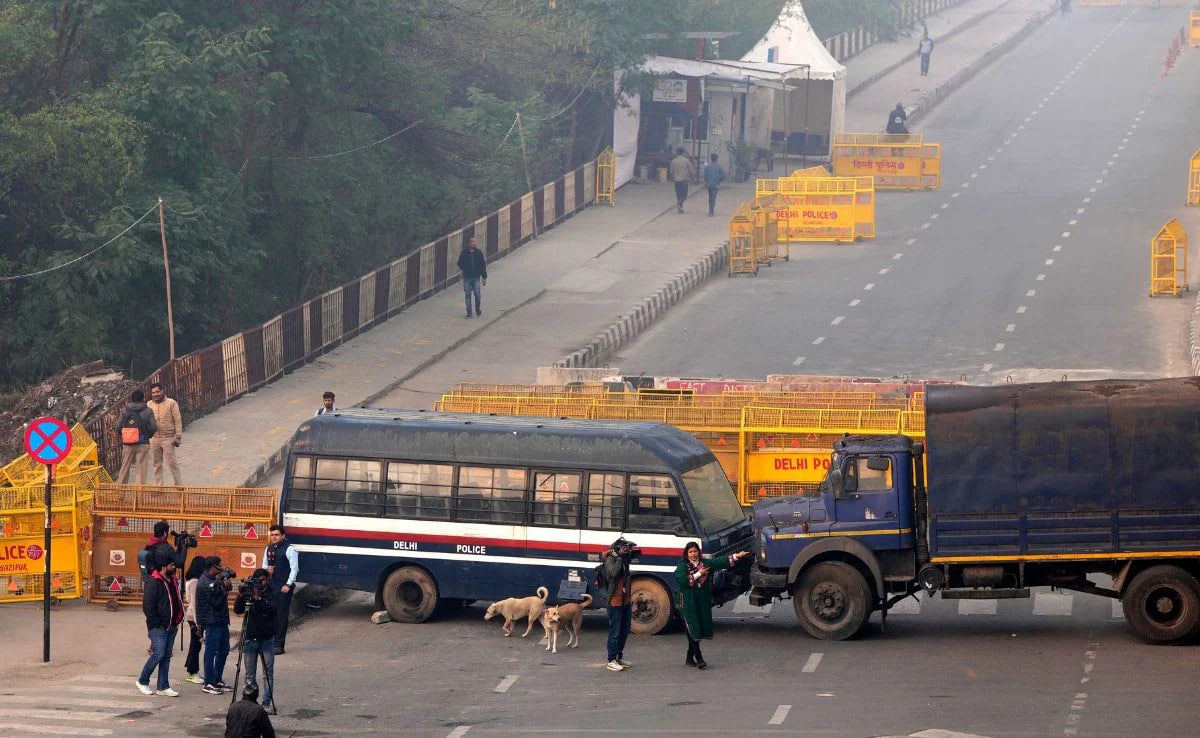Large gatherings have been banned across Delhi for a month – till March 12 – ahead of a mega protest by farmers starting Tuesday. Over 200 farmer unions – around 20,000 farmers in all – are expected to converge on the national capital in the next few days, in a potential replay of the violent protests in 2020/21 over “black” farm laws passed (and then scrapped) by the central government.
The farmers have multiple demands, including enactment of a law to guarantee minimum support price, or MSP, for their crops. Legal assurances for the MSP scheme was part of the protests four years ago, which were called off after the government reached a deal with the agitating farmers.
The other demands are implementation of the Swaminathan Commission’s recommendations, pensions for farmers and farm labourers, waiving of farm debts, and withdrawal of police cases filed during the 2020/21 protests. The farmers also want justice for those killed in Uttar Pradesh’s Lakhimpur Kheri; eight people, including four farmers, were mowed down by cars during protests.
The order banning gatherings – under Section 144 of the Indian Penal Code – issued by Delhi Police Commissioner Sanjay Arora this morning also bans entry of tractors into the national capital, and there is a complete ban on carrying of guns and inflammable substances, as well as makeshift weapons like bricks and stones, and the collection of petrol cans. Loudspeakers are also banned.
Anyone found violating these orders will be arrested on sight, the police have warned.
Ahead of the farmers’ protest – the ‘Delhi Chalo’ campaign organised by the Kisan Morcha – security has been intensified along the Singhu, Ghazipur, and Tikri border crossings into the city.
In a worrying repeat of police’s anti-protest measures from four years ago, massive concrete blocks have been lifted into place along major roads, to block the marching farmers. In 2020/21, the tens of thousands of farmers and their supporters were penned into crude townships and camps that sprang up around such barricades, which included barbed wire fences and shipping containers.
Strips of nails have been placed on roads to puncture the tyres of vehicles farmers may use to push past the barricade; this also means those not part of the protest and simply looking to travel into Delhi for work or other purposes, will face lengthy delays while police check each car or truck.
“As many as 1,500 police personnel will be deployed in each of these border areas. However, the pattern of deployment and number of personnel will change as per the situation,” police sources told NDTV.
Elaborate arrangements have been made to seal the Punjab-Haryana borders in Ambala, Jind, and Fatehabad districts.The Haryana government has also ordered the suspension of mobile internet services and bulk SMS in seven districts – Ambala, Kurukshetra, Kaithal, Jind, Hisar, Fatehabad and Sirsa – ahead of the farmers’ proposed march.














